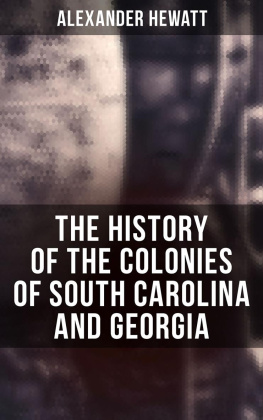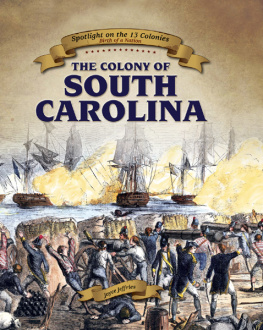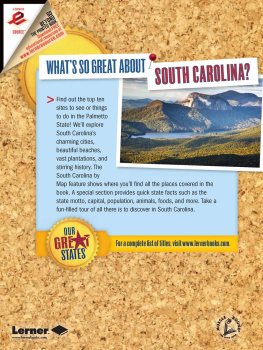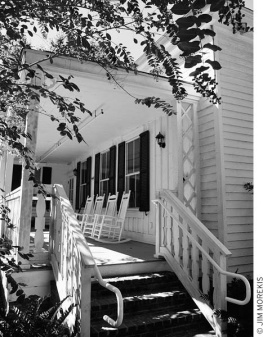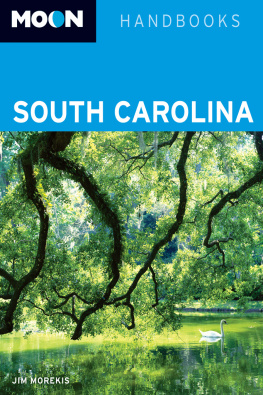PREFACE.
Table of Contents
The author of the following performance presents it to the public, not from any great value he puts upon it, but from an anxious desire of contributing towards a more complete and general acquaintance with the real state of our colonies in America. Provincial affairs have only of late years been made the objects of public notice and attention. There are yet many, both in Great Britain and America, who are unacquainted with the state of some of these settlements, and with their usefulness and importance to a commercial nation. The southern provinces in particular have been hitherto neglected, insomuch that no writer has savoured the world with any tolerable account of them. Therefore it is hoped, that a performance which brings those important, though obscure, colonies into public view, and tends to throw some light upon their situation, will meet with a favourable reception.
As many of the inhabitants of the eastern world will find themselves little interested in the trifling transactions and events here related, such readers will easily discover in what latitude the author wrote, and for whose use his work was principally intended. They will also soon perceive, that this history, like that of Dr. DOUGLAS respecting a northern settlement in America, is only a rough draught, and far from being a finished piece; and the author will frankly and candidly acknowledge it. The case with respect to him is this, to which he must beg the reader's attention. Having been several years a resident at Charlestown in South Carolina, he was at some pains to pick up such original papers and detached manuscripts as he could find, containing accounts of the past transactions of that colony. This he did at first for the sake of private amusement; but after having collected a considerable number of those papers, he resolved to devote such hours as could be spared from more serious and important business, to arrange them, and form a kind of historical account of the rise and progress of that settlement. For the illustration of particular periods, he confesses that he was sometimes obliged to have recourse to very confused materials, and to make use of such glimmering lights as occurred; indeed his means of information, in the peculiar circumstances in which he stood, were often not so good as he could have desired, and even from these he was excluded before he had finished the collection necessary to complete his plan. Besides, while he was employed in arranging these materials, being in a town agitated with popular tumults, military parade, and frequent alarms, his situation was very unfavourable for calm study and recollection.
While the reader attends to these things, and at the same time considers that the author has entered on a new field, where, like the wilderness he describes, there were few beaten tracks, and no certain guides, he will form several excuses for the errors and imperfections of this history. Many long speeches, petitions, addresses, &c. he might no doubt have abridged; but as there were his principal vouchers, for his own sake, he chose to give them entire. Being obliged to travel over the same ground, in order to mark its progress in improvement at different periods, it was no easy matter to avoid repetitions. With respect to language, style and manner of arrangement, the author not being accustomed to write or correct for the press, must crave the indulgence of critics for the many imperfections of this kind which may have escaped his notice. Having endeavoured to render his performance as complete as his circumstances would admit, he hopes the public will treat him with lenity, although it may be far from answering their expectations. In short, if this part of the work shall be deemed useful, and meet with any share of public approbation, the author will be satisfied; and may be induced afterwards to review it, and take some pains to render it not only more accurate and correct, but also more complete, by adding some late events more interesting and important than any here related: but if it shall turn out otherwise, all must acknowledge that he has already bestowed sufficient pains upon a production deemed useless and unprofitable. Sensible therefore of its imperfections, and trusting to the public favour and indulgence, he sends it into the world with that modesty and diffidence becoming every young author on his first public appearance.
CHAP. I.
Table of Contents
Among the various events recorded in the history of past ages, there are few more interesting and important than the discovery of the western world. By it a large field for adventures, and a new source of power, opulence and grandeur, opened to European nations. To obtain a share of the vast territories in the west became an object of ambition to many of them; but for this purpose, the maritime and commercial states possessed the greatest advantages. Having first discovered the country, with facility they transported people to it, settled colonies there, and in process of time shared among them the extensive wilderness.
Most men pleased with the history of their ancestors.
All accounts relating to these settlements afford pleasure to curious and ingenious minds, in what quarter of the globe soever they live; but to the posterity of the first adventurers they must be peculiarly acceptable. In the lives of our ancestors we become parties concerned; and when we behold them braving the horrors of the desert, and surmounting every difficulty from a burning climate, a thick forest, and savage neighbours, we admire their courage, and are astonished at their perseverance. We are pleased with every danger they escaped, and wish to see even the most minute events, relating to the rise and progress of their little communities, placed before us in the most full and conspicuous light. The world has not yet been favoured with a particular history of all these colonies: many events respecting some of them lie buried in darkness and oblivion. As we have had an opportunity of acquiring some knowledge of one of the most valuable and flourishing of the British settlements in that quarter, we propose to present the world with a particular, but imperfect, detail of its most memorable and important transactions.
A notion early entertained of territories in the west.
To pave the way for the execution of this design, it may not be improper to cast our eyes backward on the earliest ages of European discoveries, and take a slight view of the first and most distinguished adventurers to the western world. This will serve to introduce future occurrences, and contribute towards the easier illustration of them. Beyond doubt, a notion was early entertained of territories lying to the westward of Europe and Africa. Some of the Greek historians make mention of an Atlantic island, large in extent, fertile in its soil, and full of rivers. These historians assert, that the Tyrians and Carthaginians discovered it, and sent a colony thither, but afterwards, from maxims of policy, compelled their people to abandon the settlement. Whether this was the largest of the Canary islands, as we may probably suppose, or not, is a matter of little importance with respect to our present purpose: it is enough that such a notion prevailed, and gained so much credit as to be made the grounds of future inquiry and adventure.


